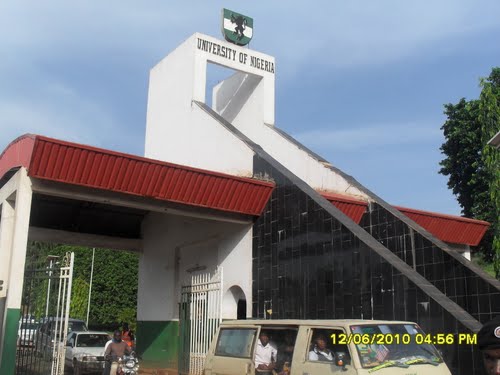The dream of the University of Nigeria to host a UNESCO category II Centre in biotechnology has become a reality following the signing of the Memorandum of Understanding between the Federal Government of Nigeria and UNESCO.
The deal for the UNESCO international Institute of Biotechnology at the University of Nigeria was sealed at a colourful ceremony held at UNESCO headquarters in Paris on October 13, 2012.
The Director General of UNESCO, Mrs. Irina Bokova, signed the MoU on behalf of UNESCO, while Nigeria’s Minister of Education, Prof. Ruqayyatu Ahmed Rufa’i, signed for the Federal Government of Nigeria.
The MOU was based on the approval of the International Institute for Biotechnology by the 36th session of the UNESCO General Conference held in Paris in June 2011.
The conference “welcomed the proposal of the Federal Republic of Nigeria to establish an international centre for biotechnology in Nsukka, Nigeria under the auspices of UNESCO” done in conformity with its principles and guidelines and authorised the Director General to sign an agreement for its establishment.
The UNESCO International Institute of Biotechnology at UNN would conduct advanced training, education and research in biotechnology with emphasis on food security, bio-resource conservation and tropical diseases.
In addition, the centre will host international conferences and collaborate with other institutions in Nigeria and the rest of Africa to advance biotechnology education in the sub-region.
In a short address during ceremony, Bokova described biotechnology as a catalyst for economic development and wealth creation and reiterated the commitment of UNESCO “to promote networking for the development of science, education and knowledge exchange and to building national capacity.”
In her post-signing address, Rufa’i revealed that the government of Nigeria had placed a premium on the establishment of the centre and expressed her optimism that the centre will soon become a reference institution that would contribute to national and international capacity building, research and development.
In his reaction, the Vice-Chancellor of the University of Nigeria, Prof. Bartholomew Okolo, who was in Paris for the ceremony, explained that the centre was the only one of its kind in Africa and has the mandate to address the problems of food security and tropical diseases in Africa.
He further assured that the centre would live up to these mandates and would have the desired impact not only on the lives of Nigerians, but also on the lives of all Africans.
Okolo told the media at the event that the signing ceremony was the climax of a long and rigorous process that began six years ago.
Okolo is a professor of biotechnology and has been involved in the quest for the Centre long before his appointment as Vice Chancellor.
The UNN Vice Chancellor thanked individuals and organisations that enabled the realisation of the establishment of the centre at UNN.
These included President Goodluck Jonathan, Rufai, and the Executive Secretary of the National Universities Commission, Prof. Julius Okojie.
Okolo acknowledged the Education Trust Fund for providing the funds for the sustenance of the centre on behalf of the Federal Government.
On the side of UNESCO, he thanked Bokova; the Assistant Director General for Natural Sciences, Prof. Gretchen Kalonji; the Director of Division of Basic Engineering Science, Prof. Malecj Nalecz; the programme Specialist in the Natural Sciences Sector, Dr. Lucy Hoareau, and their “wonderful staff” for “their incredible support over the years.
Finally, he acknowledged the support and hospitality of the ambassador/permanent delegate of the Federal Republic of Nigeria to UNESCO, Her Excellency, Mrs. Mariam Katagun, and her staff.
Previous ArticleMimiko’s victory: We’ll take a position soon – ACN
Next Article Mark, Kalu, Ahmed congratulate Mimiko


